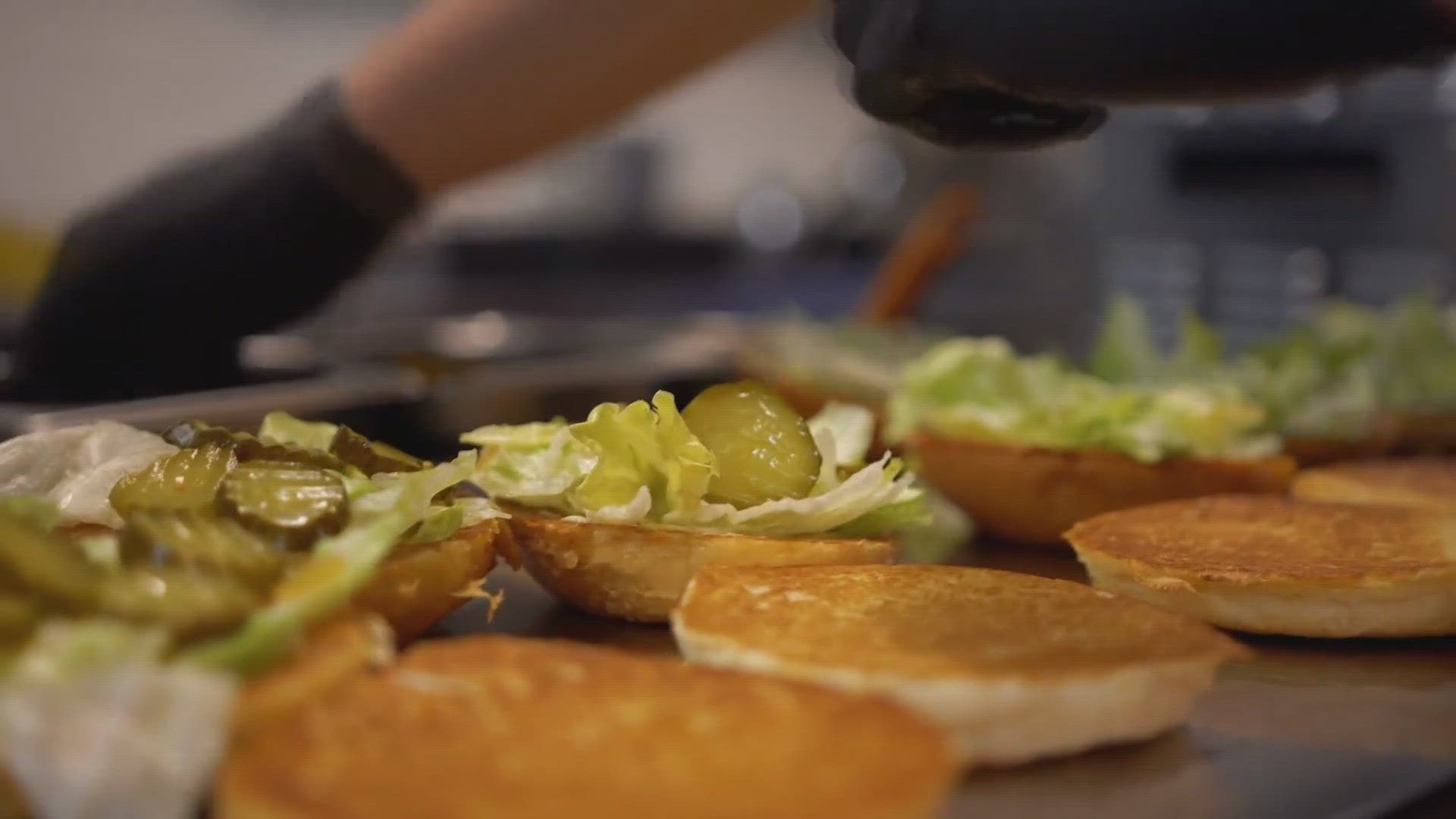SACRAMENTO, Calif. — A bill heading to the governor's desk would exempt restaurants in certain locations, including airports and hotels, from the $20 per hour minimum wage set to take effect in a couple of weeks for fast food workers.
Assemblymember Chris Holden (D-Pasadena), who introduced the bill, argues those workers make more than that and already have representation, but a lawmaker ABC10 spoke with questions the move.
The wage increase for California fast food workers is set to go into effect on April 1. The law applies to fast food chains with more than 60 locations nationally.
The bill, known as AB 610, would exempt fast food restaurants in airports, hotels, event centers, theme parks and museums.
Assemblymember Holden said certain workers in these fields have unions and have already been able to bargain for higher wages than $20 per hour.
"Examples include fast food workers at San Francisco International Airport who have wages starting at $22.50 per hour, plus benefits," he said. "Fast food workers at casinos who make $23 per hour, plus benefits."
The California State Assembly passed the bill in a 55 to 5 vote Monday.
For more California coverage, stream ABC10+ on your TV for free:
► Roku - click here
► Amazon Fire - click here
► Apple TV - click here
Assembly Minority Leader James Gallagher (R-Yuba City) voted no.
"I guess it was a bit of a protest vote because of how shady the process surrounding (AB) 1228 was," he said. "There's been all these exemptions, you know, the one that got the most attention was Panera-gate."
Assemblymember Gallagher referenced a recent Bloomberg News report that said Governor Newsom pushed for a bakery exemption to benefit a wealthy campaign donor of his, named Greg Flynn, whose company owns several Panera Bread restaurants in California. Newsom denied the report.
Flynn later announced that the Paneras his company owns will pay workers $20 per hour or higher.
Gallagher questions additional exemptions.
"My colleague's question is fair, why are we doing these exemptions? Well, there are a few good reasons: I think the carveouts are needed because 610 provides for those that have higher wages already. If they've already been receiving higher compensation, why are we limiting them?" said Assemblymember Eloise Gómez Reyes (D-San Bernardino) said as she addressed the Assembly.
"That may be the case, but I highly doubt that it's always the case, so why are they being exempted out?" Gallagher added.
ABC10 reached out to SEIU California, a union leading the charge with fast food workers. In a statement, Executive Director Tia Orr said:
“California’s fast food workers have made history, taking their seats at the state’s first Fast Food Council. In the next two weeks, a half million cashiers, cooks, and baristas will take home a $20/ hour minimum wage for the first time. As with any legislation of this magnitude, clarifying changes are to be expected. AB 610 (Holden) clarifies the scope of workers affected by new standards developed by the Fast Food Council, aligning with the intent of the FAST Act to empower fast food workers who have for too long been denied a voice in their industry. AB 610 clarifies that some workers who already have a voice in setting their wages, benefits, safety standards, and other working conditions will be exempt from the FAST Act. This will eliminate potentially overlapping and duplicative rules and processes for these workers.”
ABC10 reached out to SMF to see how this decision would impact the Sacramento region.
SSP America, which manages some of the concessions at the airport, said they recently increased hourly wages to $21 for food service workers. Line cooks get paid $23.
WATCH ALSO:



















